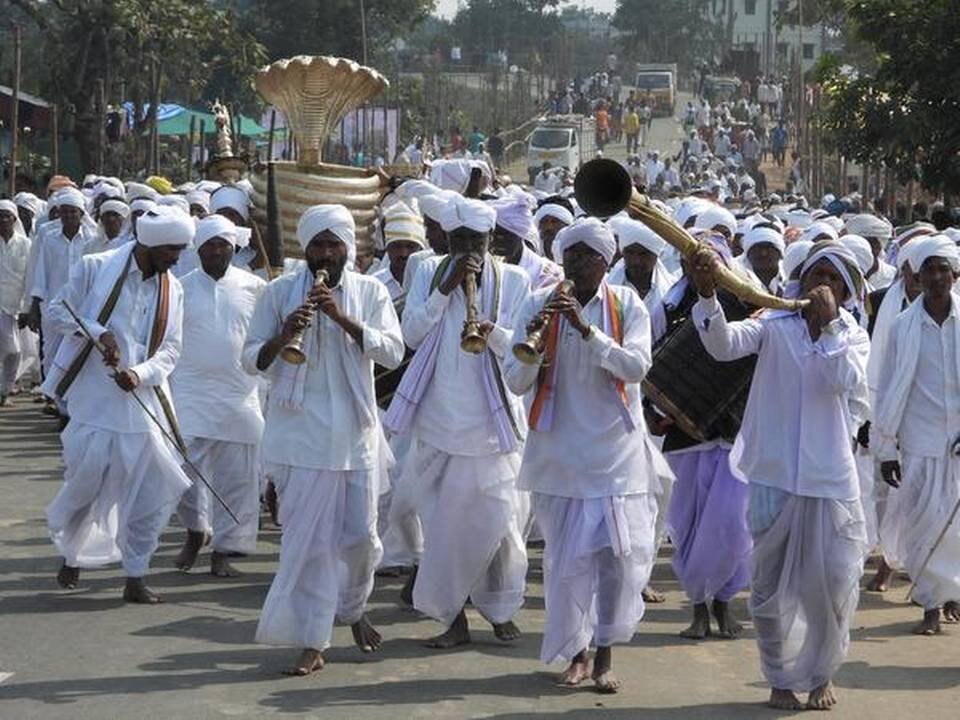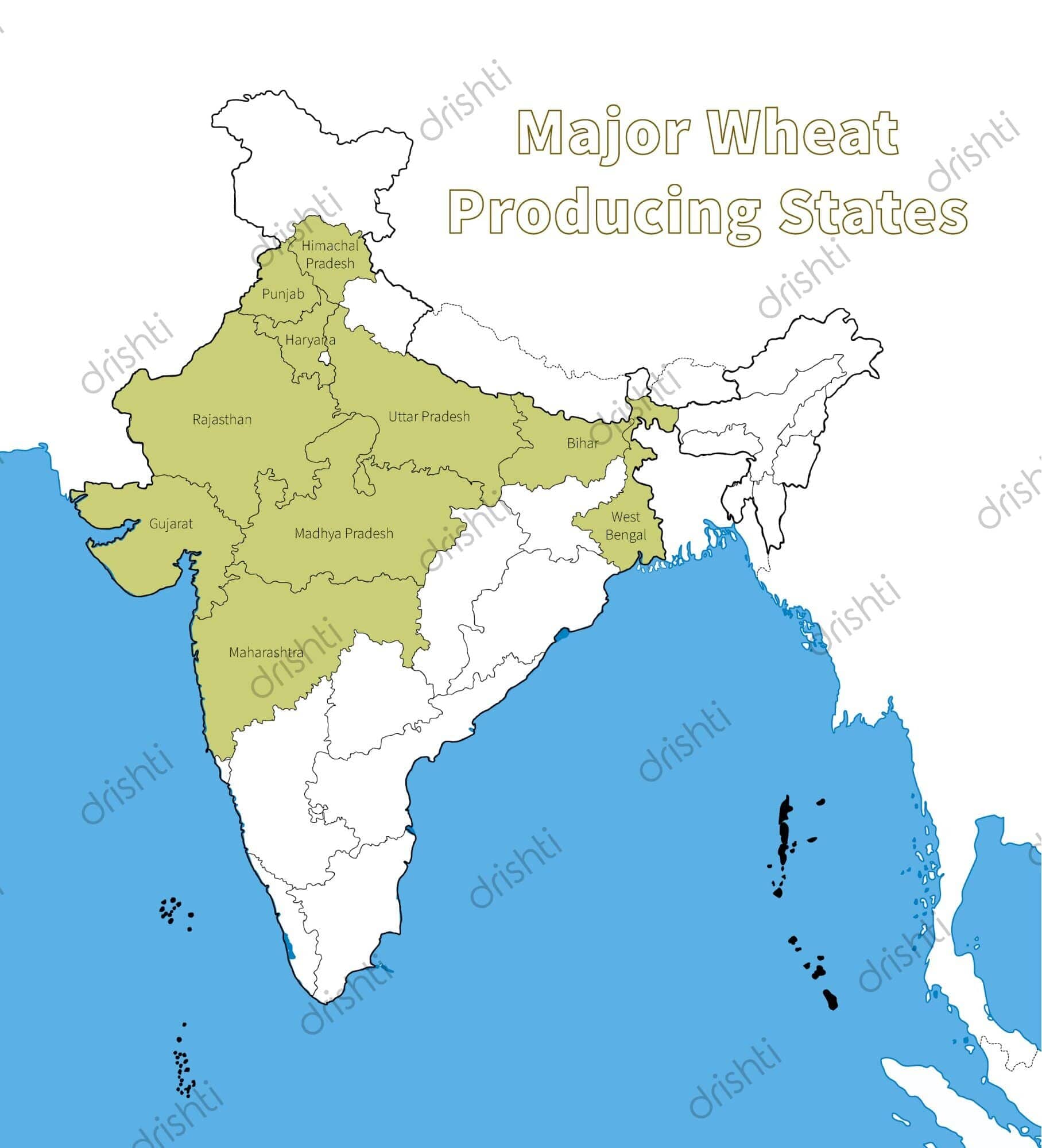Indian Polity
SC’s Judgement on Anticipatory Bail
Why in News
The Supreme Court has recently held that the protection of anticipatory or pre-arrest bail cannot be limited to any time frame or “fixed period”.
- The questions referred to the Constitution Bench were twofold:
- Whether the protection granted to a person under Section 438 of the Code of Criminal Procedure should be limited to a fixed period till the accused surrenders in court, and
- Whether the life of anticipatory bail should end when the accused is summoned by the court.
Anticipatory Bail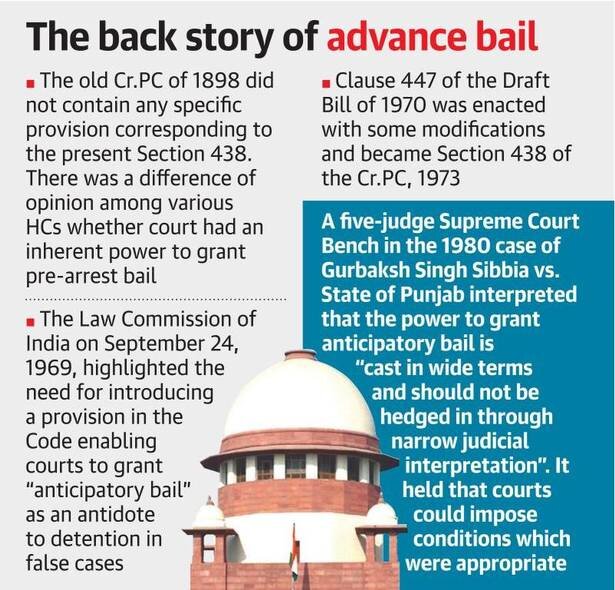
- Section 438 (anticipatory bail) of the Code of Criminal Procedure deals with direction for grant of bail to a person apprehending arrest.
- It states that when any person has reason to believe that he may be arrested on an accusation of having committed a non- bailable offence, he may apply to the High Court or the Court of Session for a direction under this section; and that Court may, if it thinks fit, direct that in the event of such arrest, he shall be released on bail.
- The high frequency of arbitrary and heavy-handed arrests to harass and humiliate citizens, and often at the interest of powerful individuals led to the enactment of Section 438.
Highlights of the Judgement
- Section 438 and its Importance
- Anticipatory bail helps thwart influential powers from implicating their rivals in false cases.
- It protects people from the humiliation of detention in jail for days.
- Anticipatory bail is all the more needed now because there is a drive of political rivalry and “this tendency is showing signs of steady increase”.
- Duration of Bail
- The life of an anticipatory bail order does not normally end at the time and stage when the accused is summoned by the court, or when charges are framed, but can continue till the end of the trial.
- A denial of bail amounts to deprivation of personal liberty (a fundamental right under Article 21 of the Constitution), thus, the Court should lean against the imposition of unnecessary restrictions on the scope of Section 438.
- Parliament has not thought it appropriate to curtail the power or discretion of the courts, in granting pre-arrest or anticipatory bail, especially regarding the duration, or till chargesheet is filed, or in serious crimes. Therefore, it would not be in the larger interests of society if the court, by judicial interpretation, limits the exercise of that power.
- Grant of Anticipatory Bail
- The court held that a plea for anticipatory bail can be filed even before the registration of FIR as long as there is reasonable basis for apprehension of arrest and clarity of facts.
- An application for anticipatory bail should be based on concrete facts and not vague or general allegations. The application should also contain bare essential facts relating to the offence and why the applicant reasonably apprehends arrest.
- The grant of protection should not be “blanket” but confined to specific offence or incident for which relief from arrest is sought. It is open for the police to move court for arrest of the accused if there is any violation of bail conditions.
- Conditions on Anticipatory Bail
- It is open for a court to impose appropriate conditions for grant of anticipatory bail if the specific facts or the features of the offence involved demands it.
- Restrictions/conditions can be imposed only on a case-to-case basis. Courts have to consider the nature of the offence, the role of the person, the likelihood of his influencing the course of investigation or tampering of evidence, including intimidating witnesses and fleeing justice.
- It is essential for the court to evaluate the threat or apprehension, its gravity or seriousness and the appropriateness of any condition that may have to be imposed. Special or other restrictive conditions may be imposed if the case or cases warrant, but should not be imposed in a routine manner in all cases.
Governance
Citizen-centric Services of NCRB
Why in News
Recently, the National Crime Record Bureau (NCRB) has launched various police-related citizen-centric services on the Crime and Criminal Tracking Network and Systems (CCTNS) platform.
- These are being launched in order to promote ‘Ease of Living’ among citizens.
- Such services are being provided through the state-citizen portals so far but these are being launched centrally for the first time.
National Crime Record Bureau
- NCRB was set-up in 1986 under the Ministry of Home Affairs (MHA) to function as a repository of information on crime and criminals so as to assist the investigators in linking crime to the perpetrators.
- It is headquartered in New Delhi.
- It was set up based on the recommendations of the National Police Commission (1977-1981) and the MHA’s Taskforce (1985).
- It was constituted by merging the Directorate of Coordination and Police Computer (DCPC), Inter-State Criminals Data Branch of CBI, Central Finger Print Bureau of CBI and Statistical Branch of BPR&D.
- NCRB brings out the annual comprehensive statistics of crime across the country through ‘Crime in India’ report.
- Being published since 1953, the report serves as a crucial tool in understanding the law and order situation across the country.
- It developed CCTNS in 2009 which interconnects approximately 15000 police stations and 6000 higher offices across the country.
- CCTNS digitises data related to FIR registration, investigation and charge sheets in all police stations leading to the development of a national database of crimes and criminals.
Key Points
- Missing Person Search
- Citizens can search for their missing kin in this user-friendly portal, against the national database of the recovered unidentified found person/dead bodies.
- This will benefit the relatives of missing persons because all details including photos are available in CCTNS and will be accessible to citizens through this portal.
- Generate Vehicle NOC
- It allows citizens to ascertain the status of a vehicle before its second-hand purchase to know if it is suspicious or clean from police records.
- One can generate and download the relevant No Objection Certificate (NOC) after searching against the National database on vehicle’s details. NOC is required by the Regional Transport Office before the transfer of ownership.
- CCTNS Hackathon and Cyber Challenge 2020
- NCRB and Cyber Peace Foundation (global civil society organisation and think tank of cybersecurity and policy experts) have designed it together.
- The Hackathon aims to enhance skills and deepen understanding of the police personnel at ground level to adopt smart strategies for effectively addressing the evolving threats and to promote coordination with industry and academia.
- The Challenge invites the participation of law enforcement personnel across all ranks and file, as well as cybersecurity experts (civilians) across India.
- NCRB and National Centre for Missing and Exploited Children (NCMEC), USA has signed a Memorandum of Understanding (MoU) to receive information on child pornography or such related material originating from India.
- NCMEC is a non-profit organization established by the United States Congress.
- It has a centralized reporting system by which internet service providers across the world or intermediaries like Facebook, Youtube, etc. can report about persons who circulate images of child pornography.
- Cyber Tipline monitoring facility
- It is a centralised system for reporting online exploitation of children.
- The public and electronic service providers can make reports of suspected online enticement of children for sexual acts, molestation, pornography, sex tourism, sex trafficking, unsolicited obscene materials sent to a child, misleading domain names and misleading words or digital images on the internet.
Governance
Amendments to National Commission for Homoeopathy Bill, 2019
Why in News
Recently, the Union Cabinet has given its approval to the amendments in the National Commission for Homoeopathy Bill, 2019.
- The draft Bill seeks to set up the National Commission for Homoeopathy and replace the Central Council of Homoeopathy by amending the Homoeopathy Central Council (HCC) Act, 1973.
- Currently, the Bill is pending in Rajya Sabha.
Key Points
- The amendments will:
- Ensure necessary regulatory reforms in the field of Homoeopathy education.
- Enable transparency and accountability for protecting the interest of the general public.
- Promote the availability of affordable healthcare services in all parts of the country.
Homoeopathy Central Council (HCC) Act, 1973
- It was enacted for the constitution of a Central Council of Homoeopathy for the regulation of education and practice of Homoeopathy, for maintenance of Central Register of Homoeopathy and for related matters.
- This Act has been modelled on the pattern of the Indian Medical Council Act, 1956.
- The broad functions, constitution, regulation-making powers are identical to those of the Medical Council of India.
- The Act provides a base for the growth of medical education and practice in Homoeopathy but there were some problems in the functioning of the Council.
- It had resulted in harmful effects on medical education and on quality of Homoeopathy healthcare services.
Important Facts For Prelims
Public Health Emergency of International Concern
Why in News
The World Health Organization (WHO) has recently announced that the Wuhan coronavirus does not yet constitute a Public Health Emergency of International Concern (PHEIC).
- A PHEIC is defined in the International Health Regulations (IHR, 2005) as, “an extraordinary event which is determined to constitute a public health risk to other States through the international spread of disease and to potentially require a coordinated international response”. This definition implies a situation that is:
- Serious, sudden, unusual or unexpected;
- Carries implications for public health beyond the affected State’s national border; and
- May require immediate international action.
- The declaration of PHEIC would lead to boosting public health measures, funding and resources to prevent and reduce global spread. It could include recommendations on trade and travel, although the WHO generally tries to avoid disruptive trade restrictions.
- The Emergency Committee, made up of international experts, provide technical advice to the WHO Director-General in the context of a PHEIC.
- The WHO has declared five global emergencies in the past decade, including the Ebola epidemic.
The International Health Regulations (2005)
- IHR (2005), represents a binding international legal agreement involving 196 countries across the globe, including all the Member States of the WHO.
- Their aim is to help the international community prevent and respond to acute public health risks that have the potential to cross borders and threaten people worldwide.
Important Facts For Prelims
Nagoba Jatara
Why in News
A month-long Nagoba Jatra festival has come to an end in Telangana.
- Nagoba Jatara is a tribal festival held in Keslapur village, Indervelli Mandal Adilabad district, Telangana, thus the festival is also known as Keslapur Jatara.
- It is a huge religious and cultural event of the Boigutta branch of Mesram clan of the aboriginal Raj Gond and Pradhan tribes.
- During the festival, the maha puja of serpent god Nagoba is held.
Gond Tribe
- Gonds are one of the largest tribal groups in the world.
- They mostly live in Madhya Pradesh, Chhattisgarh, Maharashtra, Andhra Pradesh, Gujarat, Jharkhand, Karnataka, Telangana, Uttar Pradesh, West Bengal and Odisha.
- Gonds are subdivided into four tribes:
- Raj Gonds
- Madia Gonds
- Dhurve Gonds
- Khatulwar Gonds
- It has been notified as a Scheduled Tribe.
Pradhan tribe
Pradhans are considered to be the junior branch of Gond tribe and are traditional bards to Gonds and recite mythologies, folk tales and songs of their gods and goddesses at various festivals, ceremonies and fairs for which service they are paid in cash or kind.
Important Facts For Prelims
Operation Vanilla
Why in News
Recently, the Indian Navy has launched the 'Operation Vanilla' to assist the population of Madagascar affected by Cyclone Diane.
- Indian Navy also diverted a large amphibious ship viz. INS Airavat carrying clothing, medicines, and other relief material to provide assistance and support in the relief operations.
Cyclone Diane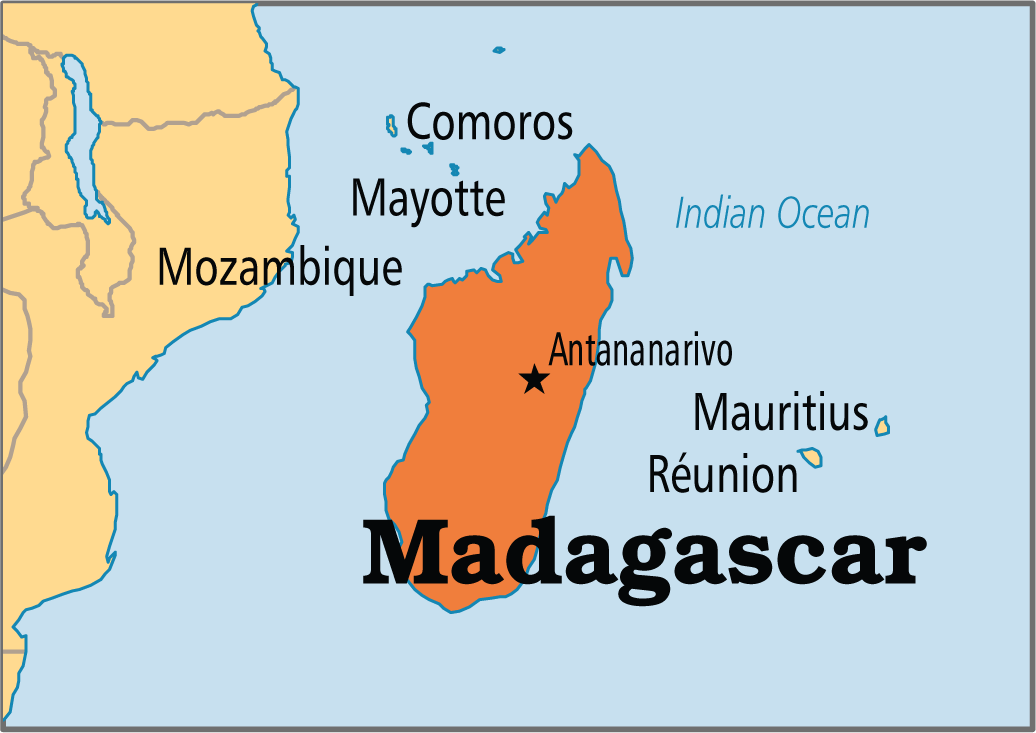
- It is a tropical cyclone.
- Origin: North-west off the coast of Mauritius in the South-western Indian Ocean.
- Madagascar has been hit by it and there has been heavy flooding and landslips causing loss of lives and displacement, affecting more than 92,000 people. India has been the first country to respond to floods in Madagascar.
Significance
- India assistance to Madagascar is in consonance with Prime Minister's vision of 'Security and Growth for all in the Region (SAGAR)'.
- India is working with France to develop strategic and economic partnership involving Madagascar, Reunion Islands-Comoros so as to balance the growing influence of China in that part of the Indian Ocean Region.
Important Facts For Prelims
Yellow Rust
Why in News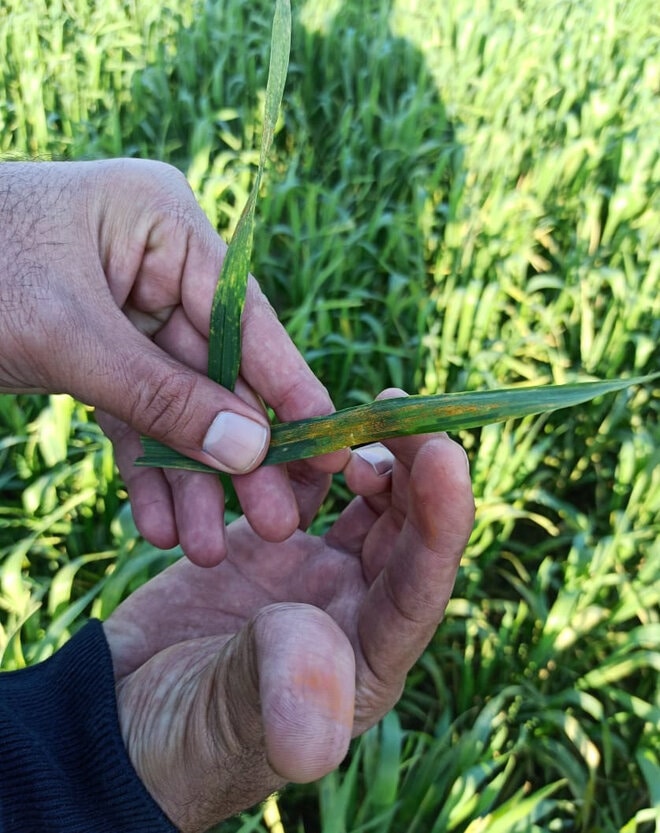
In sub-mountainous parts of Punjab and Haryana, yellow rust disease has been detected in the wheat crop which has raised concerns among farmers about a drop in the crop's yield.
Key Points
- Yellow rust or stripe rust is a fungal disease which attacks the leaves of wheat crop by forming yellow stripes and affects their photosynthesis that causes shrivelling of grain size.
- It is a disease of cool weather in the northern hills and north-western plains zone.
- The recent rains in the region coupled with a slight increase in the temperature and humid conditions are favourable for yellow rust.
Wheat
- Temperature: Between 10-15°C (Sowing time) and 21-26°C (Ripening & Harvesting) with bright sunlight.
- Rainfall: Around 75-100 cm.
- Soil Type: Well-drained fertile loamy and clayey loamy (Ganga-Satluj plains and black soil region of the Deccan)
- Top Wheat Producing States: Uttar Pradesh > Punjab > Madhya Pradesh > Haryana > Rajasthan.
- It is a rabi (winter) crop, is sown between late October till December while the harvesting of the crop starts from April onwards.
- India is the second-largest producer after China.
- This is the second most important cereal crop and the main food crop, in the north and north-western India.
- The success of Green Revolution contributed to the growth of Rabi crops especially wheat.
- Government initiatives to support wheat cultivation: Macro Management Mode of Agriculture, National Food Security Mission and Rashtriya Krishi Vikas Yojana.

